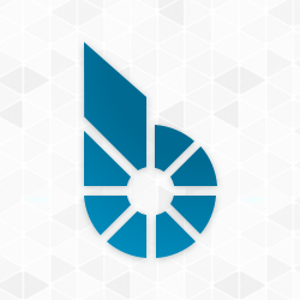BitShares Crypto Coin Rank 1525
Website
White Paper
2,995,060,000 BTS
Buy / Sell
Get Wallet
 BitShares BTS Coin Values BTS
BitShares BTS Coin Values BTS
BTS Coin Values BTS
BitShares valuesUSD Price $ 0.0010
$ 0.0010
BitShares BTC Price 0.00000001
0.00000001
BitShares 24h Vol $ 77,897
$ 77,897
BitShares Market Cap $ 3,010,509
$ 3,010,509
24h Vol
1 BTC 1 H
0.24 %
24 H
-0.71 %
7 d
0.92 %
Current Status: BitShares The latest price of this cryptocurrency in USD is
0.0010
USD, , and when converted to Bitcoin the value stands at
0.00000001
BTC. Total Circulating Supply: 2,995,060,000 BTS that are currently circulating in the global market is estimated at BitShares Market Trend: -0.71 %The price movement is showing a fluctuation of Explore all available cryptocurrencies here. 24-Hour Market Data: 0.001 M US dollars In the last 24 hours, the market has experienced a change in volume and price movement, reflecting the volatility of the crypto sector. BitShares Trade Volume: The total number of transactions executed across major crypto exchanges stands at an impressive figure.. Get BitShares's progress by adding it to your favourites and creating a free portfolio.
ICO Status
BitShares ICO Details
ICO Status
Finished
Token Supply
2511953117
Start Date
2014-07-21
End Date
2014-08-21
Fund Raised (BTC)
5,621 BTC; 415,000 Protoshares
Fund Raised (USD)
3600000
Start Price (USD)
0.01
Security Audit Company
N/A
ICO Legal Form
N/A
ICO Jurisdiction
N/A
Legal Advisers
N/A
White Paper
BTS raised the equivalent of 5904BTC primarily in BTC and about 400 BTC worth of protonshares (415,000PTN). At the time it was worth around $3.6 Million. More information on the history of Bitshares can be found here.
Related Coins
Read the Disclaimer : All content provided herein our website, hyperlinked sites, associated applications, forums, blogs, social media accounts and other platforms (“Site”) is for your general information only, procured from third party sources. We make no warranties of any kind in relation to our content, including but not limited to accuracy and updatedness. No part of the content that we provide constitutes financial advice, legal advice or any other form of advice meant for your specific reliance for any purpose. Any use or reliance on our content is solely at your own risk and discretion. You should conduct your own research, review, analyse and verify our content before relying on them. Trading is a highly risky activity that can lead to major losses, please therefore consult your financial advisor before making any decision. No content on our Site is meant to be a solicitation or offer.


